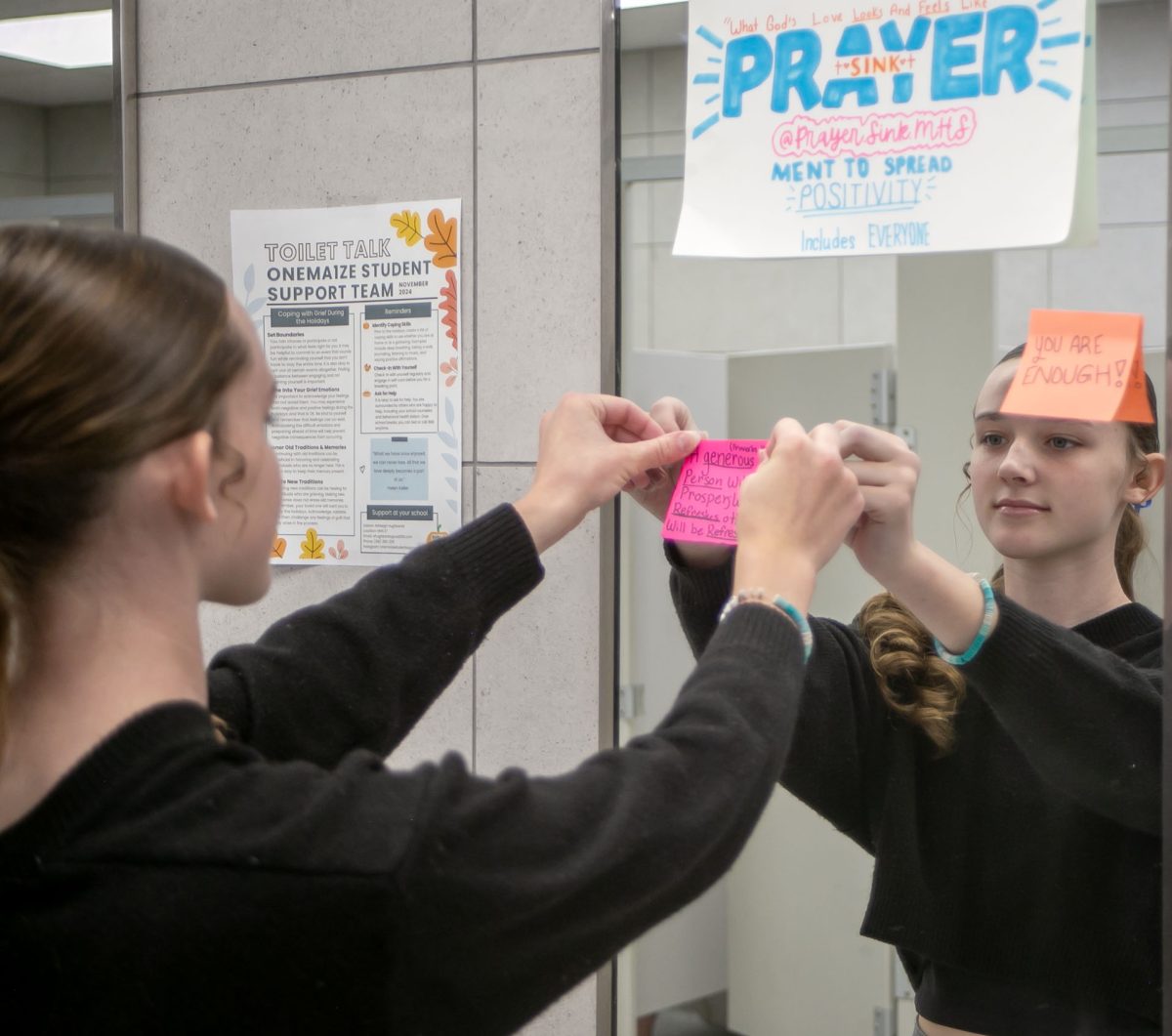January is stalking awareness month in Kansas
January 24, 2020

Photo submitted by: Stalking Prevention Awareness and Resource Center (SPARC)
Although some people may think stalking only happens to adults, the biggest numbers of reports with stalking situations have been reported by people from the ages 16-24 to the Wichita Family Crisis Center. Some reports consist of stalking-like behaviors, intimate partner abuse and power and control issues.
On Dec. 6, the governor of Kansas Laura Kelly signed off that the month of January 2020 is Stalking Awareness Month in Kansas.
“It definitely starts at your age group,” Executive Director of Wichita Family Crisis Center Amanda Meyers said. “That’s where we see these behaviors really begin and then escalate.”
With this generation, social media is much more prevalent, causing it to be easier to internet stalk. Many teens post frequently, allowing a stalker to easily track someone. Some warning signs consist of someone checking your social media or phone without permission, contacting you repeatedly and needing to know where you are at all times of the day.
“Telling you what you can wear, controlling who you can see, and just anything that is happening in your relationship that just scares you or gives you a bad gut feeling [are warning signs],” Meyers said.
The four main aspects when stalking are surveillance, life invasion, interference and intimidation. When it comes to surveillance, the stalker may follow you or have others follow you which is called proxy stalking. For life invasion, the stalker may call you while at school or work or spreading rumors about you. Interference may be seen by ruining your reputation. Intimidation may be threatening you to stay in the relationship.
“Any kind of violence [in an abusive situation] is always because the stalker or abuser feels entitled to power and control over the victim,” Kansas Coalition Against Sexual and Domestic Violence (KCSDV) Communications Coordinator Lucca Wang said.
Stalking is a crime, so when being stalked it is best to let a trusted adult and police know. If there is any communication between the victim and stalker, recording and saving the conversation would be good. If they show up at your house, it would also be helpful to record it because it is difficult to provE. There are also other ways to get protection from stalking.
“If you can go downtown and get what’s called a protection from stalking order and issue that to the person who’s stalking you and then if they show up, they can be arrested on the spot,” Officer Jayme Dover said.
That order helps the victim to get away from the stalker because it shows they’ve already partially proven that the stalker is stalking. It is similar to a restraining order but they are called protection from abuse and stalking. If the stalker tries to communicate with the victim, then paperwork has already been filled out so an arrest can be made.
“Stalking is truly the offender’s fault because they are the ones that make those overt actions that are really saying to the victim that ‘you will never get away from me. I follow you everywhere you go or I have other people follow you everywhere you go,’” Executive Director of Family Crisis Services in Garden City Haleigh Knoll said. “It’s really important to understand that stalking is not the victim’s fault in any way shape or form.”
Wichita Family Crisis Center (316) 263-2313
Wichita Area Sexual Assault Center (316) 263-0185
KCSDV (785) 232-9784




